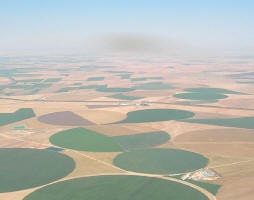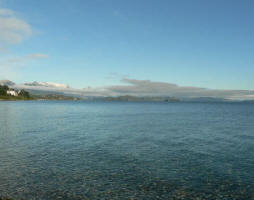 Nearly 5000 litres of water a day consumed per capita in EU
Nearly 5000 litres of water a day consumed per capita in EU
A new study has shown that agricultural products make the largest
contribution to the water footprint of the EU and recommends reducing food
waste, changes in diet and increased agricultural efficiencies. On average, each
EU citizen consumes 4,815 litres of water per day, when the water used to
produce all goods and services, including those imported into the EU, is
accounted for. Water-use efficiency is becoming increasingly important in light of rising
demand on water supplies. This issue has prompted the 2012 Blueprint to
Safeguard Europe’s Water1 which outlines policy actions aiming to
meet this challenge in Europe. The ‘water footprint’ is a measure of water use
which accounts for both direct and indirect use by a region, business or
individual and has been developed to aid decision makers by quantifying water
use in terms of direct uses (e.g. drinking water) and indirect uses, which
originate from the production process of industrial or agricultural goods. This study reviews methods to assess the water footprint budget across all 27
EU Member States as well as Croatia (EU28), which is set to join the EU in July
2013. It considered two measures of water footprint; the production water
footprint and the consumption water footprint. The production water footprint is
the direct and indirect use of water for production of goods or services within
the countries considered. The consumption water footprint is the total
consumption, which also accounts for ‘virtual flow’ i.e. the import and export
of goods or services that require water use as part of their production. The results demonstrate that the consumption water footprint of the average
EU28 citizen is 4,815 litres per day, 40% of which is the result of imports from
other countries, mainly cocoa, coffee and cotton. Comparing imports and exports
showed that the EU28 is a net importer of ‘virtual’ water, using 2,364 litres
per capita per day (lcd) in the form of imports, but exporting only 645 lcd. The
production water footprint in the EU28 is on average 3,420 lcd. Agricultural products contribute the majority of water use across both
measures of water footprint; 89% of the consumption water footprint and 91% of
the production water footprint. In total, animal products represent more than
half the total value and the consumption of milk, beef and pork is associated
with particularly high water footprint values. The focus of water-use policy and awareness campaigns has often been on
reducing direct use. However, these results demonstrate that reduction of food
waste, changes in diet (particularly reduction of animal products) and increased
efficiencies in agriculture could be particularly effective methods of reducing
the water footprint. In reviewing the water footprint as a policy tool, the researchers suggest
that further standardisation is needed and the omission of other environmental
impacts of consumption and production, such as land use or greenhouse gas
emissions, is a drawback. Despite this, they conclude that it is a powerful
communication tool that can be used to link water resources to
consumption. Source: Vanham, D. & Bidoglio, G. (2013). A review on
the indicator water footprint for the EU28. Ecological Indicators. 26:
61-75. DOI: 10.1016/j.ecolind.2012.10.021. Contact: davy.vanham@jrc.ec.europa.eu
| Contact information |
Email: davy.vanham@jrc.ec.europa.eu |
|---|---|
| News type | Inbrief |
| File link | n/a |
| Source of information | Vanham, D. & Bidoglio, G. (2013). A review on the indicator water footprint for the EU28. Ecological Indicators. 26: 61-75. DOI: 10.1016/j.ecolind.2012.10.021. |
| Keyword(s) | water footprint, Sustainable consumption, water production, BluePrint |
| Subject(s) | DRINKING WATER , DRINKING WATER AND SANITATION : COMMON PROCESSES OF PURIFICATION AND TREATMENT , FINANCE-ECONOMY , HYDRAULICS - HYDROLOGY , INFRASTRUCTURES , POLICY-WATER POLICY AND WATER MANAGEMENT , WATER DEMAND |
| Relation | http://ec.europa.eu/environment/water/blueprint/index_en.htm |
| Geographical coverage | n/a |
| News date | 15/02/2013 |
| Working language(s) | ENGLISH |
 you are not logged in
you are not logged in





